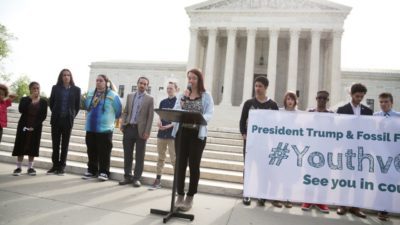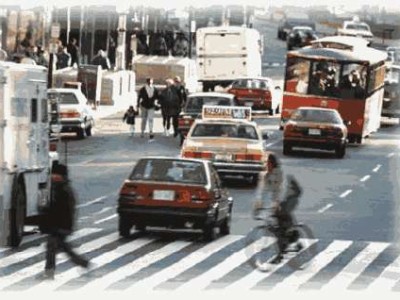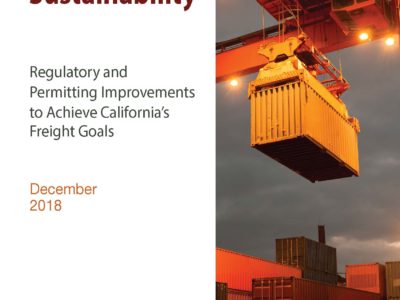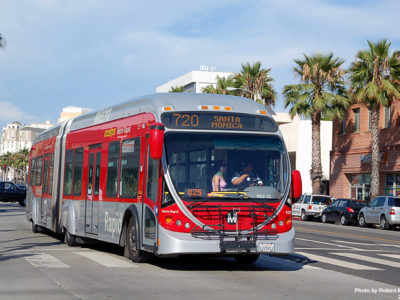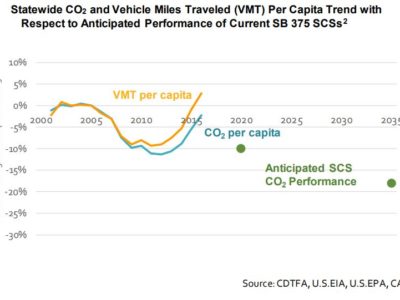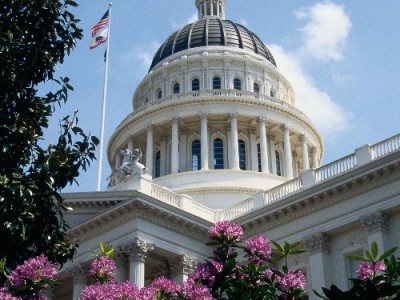Transportation
The Worst of a Bad Lot
They’re all bad, but this regulatory rollback effort stands out for sheer incompetence.
The Trump Administration has many energy and environmental initiatives, none of them good. But in terms of shoddy analysis and tenuous evidence, the worst is the Administration’s attempt to freeze fuel efficiency standards. For sheer lack of professionalism, the Administration’s cost-benefit analysis is hard to match. And you can’t even say that the Administration is …
Continue reading “The Worst of a Bad Lot”
CONTINUE READINGWhat’s Wrong with Juliana (and What’s Right?)
The odds against the “children’s case” are bad and getting worse. But there’s a valid insight at its core.
Juliana v. United States, often called the “children’s case,” is an imaginative effort to make the federal government responsible for its role in promoting the production and use of fossil fuels and its failure to control carbon emissions. They ask the court to “declare the United States’ current environmental policy infringes their fundamental rights, direct the …
Continue reading “What’s Wrong with Juliana (and What’s Right?)”
CONTINUE READINGUsing Emergency Powers to Fight Climate Change
If Trump can stretch emergency powers, maybe they can be used for other purposes too.
Could a future President invoke emergency powers against climate change? Republicans are apparently worried that if Trump could use emergency powers by declaring border security a national emergency, the next president could do the same thing for climate change. There’s no doubt that this would be far more legitimate than Trump’s wall effort. Border crossings …
Continue reading “Using Emergency Powers to Fight Climate Change”
CONTINUE READINGGuest Blogger Gregory Dotson: Oregon May Join the Western Climate Initiative: What About Gasoline Prices?
Regardless of State Action, Surging Sales of Electric Vehicles Could Crash Gasoline Prices
Oregon is on the verge of taking historic action to establish an economy-wide cap and invest program and clean up the state’s carbon pollution. In doing so, Oregon could demonstrate how one state can do its part to avoid the worst effects of climate change. The concept dates back more than a decade, but the …
CONTINUE READINGNew CEQA SB 743 Transportation Guidelines Finally Finalized
Critical revisions will be discussed at March 1st Conference in Los Angeles — register now!
It took five years, but California has finally ditched an outdated and counter-productive metric for evaluating transportation impacts under the California Environmental Quality Act (CEQA). With the guidelines finalized on December 28th, a mere half-decade since the passage of SB 743 (Steinberg) in 2013, the state will ditch “auto delay” as a measure of project …
Continue reading “New CEQA SB 743 Transportation Guidelines Finally Finalized”
CONTINUE READINGStreamlining Permitting and Regulatory Processes for Sustainable Freight Projects
New Berkeley Law report for the Governor’s Office details policies to speed up the transition to sustainable freight in California
A new report from UC Berkeley School of Law, Streamlining Sustainability, outlines a set of policy reforms and other measures California leaders can enact at the state and local level to increase the sustainability and efficiency of the state’s freight system. Freight is responsible for hundreds of thousands of jobs in California and feeds commerce …
Continue reading “Streamlining Permitting and Regulatory Processes for Sustainable Freight Projects”
CONTINUE READINGAre Buses the Silver Bullet to Reduce Declines in Transit Ridership?
Reversing plummeting transit ridership is key to counteracting rising VMT
In my first deep dive into strategies to reduce vehicle miles travelled (VMT), I’m looking at declining transit ridership using Los Angeles as a case study since its ridership numbers drive the overall statewide trends. Investing in public transit is one of the most time-tested strategies for reducing personal VMT, since every car-owner we can …
Continue reading “Are Buses the Silver Bullet to Reduce Declines in Transit Ridership?”
CONTINUE READINGAuctioning the Upzone: A New Strategy for Inducing Local-Government Compliance with State Housing Policies
New White Paper by U.C. Davis Law Professors Recommends Market-Based Tool to Incentivize Intensified Urban Development in California and Beyond
(Note: the following post was co-authored by U.C. Davis School of Law Professors Chris Elmendorf and Darien Shanske; the white paper discussed in the post is their work product.) California’s housing policies–a topic that for years received precious little attention from state officials–has suddenly become the Golden State’s hottest political and policy issue. The California Legislature passed …
CONTINUE READINGWe’re Never Going to Meet Our GHG Transportation Goals Unless We Radically Rethink Our Cities
Introducing an ongoing series focused on reducing vehicle miles traveled as a crucial climate mitigation strategy
I’ve been thinking a lot lately about vehicle miles traveled, or VMT. Specifically, why is it so hard to get people to think seriously about reducing VMT as a climate mitigation strategy? Building on my earlier ode to electric scooters, this post begins a semi-regular series on different aspects of VMT reduction strategies, beginning with …
CONTINUE READINGRecommendations For Governor-Elect Newsom To Address Wildfire, Water, & Climate and Transportation Threats
New CLEE and Resources Legacy Fund report based on three expert convenings
Climate change exacerbates the droughts, floods, and wildfires that Californians now regularly experience, making them even more extreme and unpredictable. Gavin Newsom, California’s next governor, faces the urgent challenge of simultaneously preparing for inevitable disaster, improving the quality of life for residents, and minimizing the greenhouse gas emissions of a society of nearly 40 million …
CONTINUE READING





